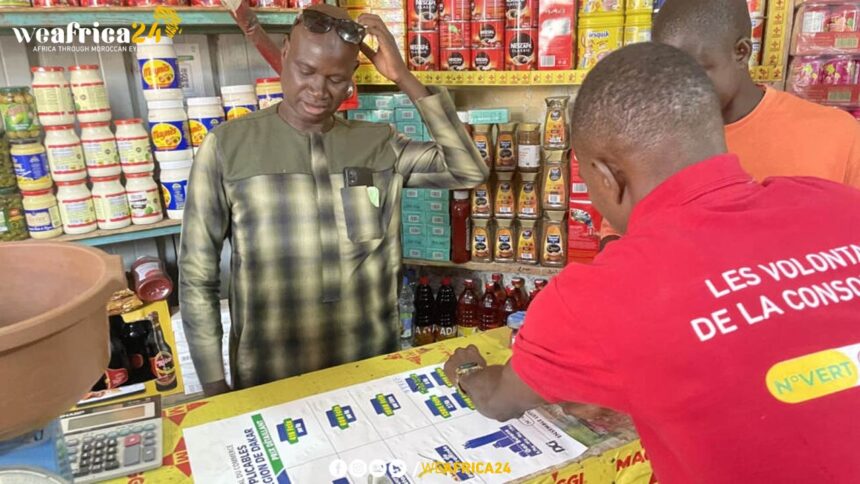The government-mandated price reduction on essential commodities such as sugar, rice, oil, and bread has been in effect since June 24th, 2024. Starting June 26th, a comprehensive control operation was launched in Dakar. A team of one hundred agents from the Ministry of Commerce, along with volunteers, visited numerous shops to ensure adherence to the new pricing regulations.
Amadou Touba Niane, the head of the regional commerce service, personally led the initial inspections. In a small shop located in the Medina neighborhood, Niane questioned the shop owner about his pricing.
The shopkeeper, Antoine Moustapha Sène, confirmed compliance with the new sugar price, set at 600 CFA francs per kilogram (approximately 91 euro cents). “I just arrived yesterday,” Sène explained. “My boss had already informed me about the new prices for products affected by the reduction.”
The team of agents is also ensuring that shopkeepers purchase goods at the correct prices. These efforts are supported by law enforcement agencies. “Today, we have law enforcement on high alert. This morning, the gendarmerie informed us of an infraction,” Niane stated. “We are ready to intervene immediately if there are any irregularities.”
A consumer rights volunteer displayed price lists in all the visited shops, with a mandate to report any discrepancies. Additionally, the Njeg yi app – meaning “prices” in Wolof – is available for customers to use. Penalties for non-compliance by shopkeepers range from 100,000 to 200 million CFA francs (approximately 152 to 304,000 euros).
On June 13, 2024, the Senegalese government announced measures to reduce prices on common consumer goods such as rice, oil, and bread in response to the high cost of living. Newly inaugurated President Bassirou Diomaye Faye, who took office in early April following his victory in the March elections, had pledged during his campaign to address the high cost of living in the country, which relies heavily on imports for its consumption needs.







